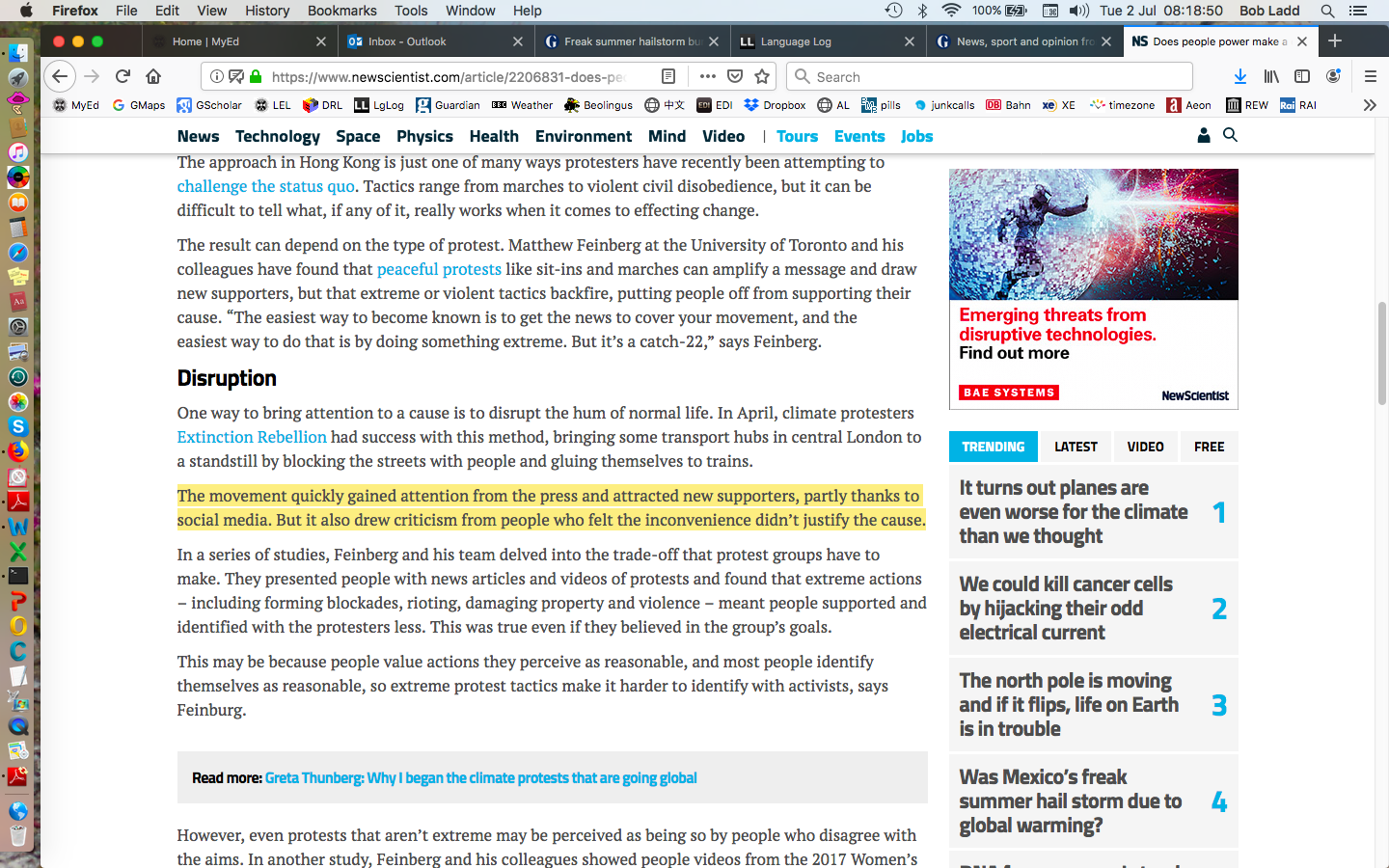Which justifies what?
« previous post | next post »
Chelsea White, "Does people power make a difference? The truth about protests", The New Scientist 6/17/2019 [emphasis added]:
Hundreds of thousands of people filled the streets of Hong Kong on 9 June to protest a government plan to allow extraditions to mainland China. The demonstrations have continued regularly since, with seas of protesters surrounding a government building and preventing law-makers from meeting about the proposed law. […]
One way to bring attention to a cause is to disrupt the hum of normal life. In April, climate protesters Extinction Rebellion had success with this method, bringing some transport hubs in central London to a standstill by blocking the streets with people and gluing themselves to trains.
The movement quickly gained attention from the press and attracted new supporters, partly thanks to social media. But it also drew criticism from people who felt the inconvenience didn't justify the cause.
The author presumably wanted to ask whether the cause justified the inconvenience — but like "more people have thought about this than I have", it seems to be easy to get a plausible reading no matter which order the subject and object are presented in.
The obligatory screenshot:

Michael said,
July 3, 2019 @ 2:34 am
Does the ease of a plausible reading justify the cost of spreading blunderous language use?
Joe said,
July 3, 2019 @ 1:14 pm
Per Michael above, perhaps the mistake (in writing and reading) "justify the cause" sounds a lot like "justify the cost"?
Don said,
July 3, 2019 @ 4:31 pm
@Joe – if that's the case here (that "cause" was meant to be "cost"), then we've got an inconvenience and a cost, neither of which should be doing any justifying.
Cheryl Thornett said,
July 4, 2019 @ 12:21 am
Could someone have tried too hard to eliminate a passive? '…the inconvenience _wasn't justified by_ the cause.'